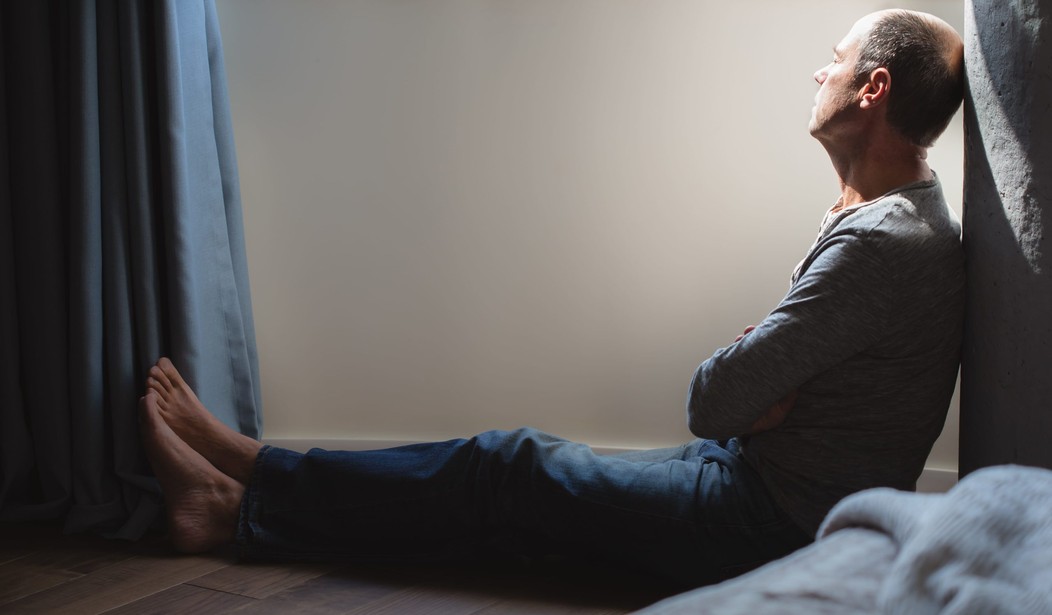As a co-founder of an organization advocating for shared parenting after divorce, I talk with my share of parents, usually fathers, who’ve been minimized to seeing their children only four days a month. It is an extremely traumatic, emotionally scarring experience. Parents contact me in a desperate attempt to get back into their children’s lives in a meaningful way. They wonder what strategies might work, if there are legal avenues they have not pursued, and if someone is willing to advocate on behalf of them and their kids.
These are difficult discussions for multiple reasons. Of course, fathers want the injustice they’ve experienced to be both quickly recognized and rectified. Unfortunately, that’s not how our legal system is designed. But these conversations are even more difficult since any path to seeing their children more must begin with helping fathers process the trauma they’ve experienced.
I used to recommend a multi-step process, which incorporated talk therapy as part of a holistic approach. With the recent issuance of guidelines by the American Psychological Association denouncing masculinity, I can no longer do so.
There is, without question, a reluctance for traumatized fathers to initiate the process of seeing a therapist. In part, it’s the unfortunate societal stigma that seeing a therapist means “you’re crazy.” That’s hogwash. Life is a tremendously scarring experience and the vast majority of individuals could benefit from therapy at some point. We all have experiences — “That was the year my dad died,” “my mom got cancer,” “my business failed,” “I got divorced and lost my kids,” etc. — which could be aided by a quality therapist. Yet despite this strongly held belief, I’ve been cautious in recommending talk therapy. That’s because psychology is no different than any other profession with a small percentage of masters, a slightly larger group on their way to becoming masters, and then the rest. While a quality therapist can be extraordinarily useful in helping traumatized individuals navigate their predicament, there are many well-meaning but incapable therapists who are, at best, providing no help at all to financially strapped dads. That’s always been a risk I was willing to take.
With the issuance of the APA’s new guidelines against masculinity, my major concern must now be that traumatized fathers will be treated in a sardonic fashion. That potential risk now outweighs the potential rewards.
How can I draw that conclusion?
Just as telling as the APA’s anti-masculinity announcement was the lack of an uproar from the members they represent. Who are those members? The APA states:
The percent of psychologists who are women increased from 57 percent in 2007 to 65 percent in 2016. Within the psychology workforce, the mean age for women (47.6 years) was almost seven years younger than the mean age for men (54.4 years).
Their past president is Jessica Henderson Daniels, the current president is Rosie Phillips Bingham, and the president-elect is Sandra L. Shullman. Finally, both masters and PhD students are now 76.2% female.
Where is the persistent call for diversity within the APA?
How can we realistically believe members of the APA can relate to, and then successfully treat, a father minimized in the lives of his children simply due to his gender? The public believes divorced fathers are among those most unfairly treated by our courts, and with good reason. Too often, fathers can’t overcome the trauma of being unfairly separated from their children and having little to no recourse. You can see the despair in their blood-splattered suicide notes, or in their explanation of why, for the sake of their children, they’ve rationally concluded it’s best for them to walk away.
Was it “toxic masculinity” that created these fatherless children? Or was it a different ideology, practiced by family courts, and now seemingly adopted by the American Psychological Association?
There have been some women willing to publicly repudiate APA’s recent actions, including Barbara Kay, Tammy Bruce, Suzanne Venker, and Nicole Russell. There should be more women denouncing the APA’s action. The APA has since issued a clarifying statement of their intentions; David French has adroitly dissected the APA’s attempt to walk back their initial announcement, calling their backtracking “a case study in misdirection.”
Unfortunately, our society will sometimes experience catastrophic events on a massive scale. When such events occur, there are three primary groups who run towards, rather than away, from danger: Our military, police, and firefighters. These are all male-dominated professions. When even further assistance is needed, citizen-led groups are enthusiastically willing to assist; I suspect few would wager that groups like the Cajun Navy aren’t overwhelmingly male. We even have instances when groups of young men gladly offer their lives to protect women they don’t even know.
That the female-dominated APA is denouncing masculinity is shameful.
The bar associations, to protect their income streams, have long lobbied against what we now overwhelmingly know is best for children: Shared Parenting. With its declaration of war against masculinity, the APA now joins the ranks of the most disturbing acts I’ve seen undertaken by a professional organization.
As the APA has shown it is more interested in ideology than in science, I can no longer, in good conscience, recommend their members to the fathers I encounter.
It now seems significantly more likely that more therapeutic benefit will be achieved by advising divorced dads to join a fathers’ group, and be among those who can relate to their issues. While there, they’ll likely encounter some of the “traditional masculinity” the APA has denounced.
Unlike members of the APA, I’m just fine with that, and know it will help divorced fathers in their time of need. It’s pathetic that we can no longer count on members of the APA to do the same.
Follow the author on Twitter: @TerryBrennan211









Join the conversation as a VIP Member